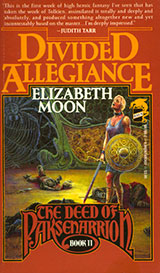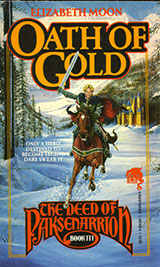Quite often works of fiction provide a convenient escape from the reality. Traveling the pages of a book takes less money than visiting the real world destinations. For example, climbing imaginary Mount Doom on the pages of “The Lord of the Rings” is definitely safer than going up the real Mount Everest and an affair on the pages of a romance novel is easier than finding love in the real life. Fiction may get you to visit the most amazing places, to have unbelievable adventures and to find the love of a lifetime, but… only while you are reading it. Unfortunately, fiction often has the same effect as narcotics, except rather than hijacking the endorphin receptors it hijacks one’s desire to deal with the real world.
Fortunately, there are books with the opposite effect. Rather than taking you away from the reality, good fiction makes it more appealing. A good book of fiction uses colors that may not be available in real life’s palette, taking its hero into the situations not possible in the real world. Space ships and magic wands are but decorations to the bright and salient portrait of human character. When you close such a book, the spaceships or magic wands may go, but the yearning for a sense of purpose and the inspiration to become a better person will stay long after you finish the last page.
“The Deed of Paksenarrion” is just such type of fiction. It is the story of a young girl (Paksenarrion) growing from the humble origins as a sheep farmer’s daughter all the way to a holy warrior, paladin, with the ability to recognize the good in the world and making it happen. The world in this book has magic in it; however Paksenarion’s doesn’t have any magical abilities. Neither does she kill dozens of enemies with the swipe of a sword. Paksenarrion’s strength comes from her character.
The story is divided in three books. In the first book, “Sheepfarmers Daughter”, Paks (short for Paksenarrion) runs away from the arranged marriage to join one of the few military companies that take women soldiers. At this time there is nothing extraordinary about her except having enough courage to run away from home. Elizabeth Moon’s description of the military training is remarkably realistic. The details of the medieval weaponry, training and tactics are good enough to be used as a textbook. The author’s personal experience in the military has clearly helped her to depict the psychology of the recruits and conflicts within the military. Paks faces problems and makes difficult choices, loses friends and acquires enemies. She gradually changes from being a simple peasant girl into someone who is ready for her next station in life.
In the second book, “Divided Allegiance”, Paks is no longer a soldier doing her commanders’ bidding. She finds herself in a more independent role, having to face many more choices. It is impossible to mention her victories and defeats without spoilers. It is sufficient to say that Paksenarrion is pushed almost to the breaking point which, as it often goes, gets strengthened and transformed. This transformation is written out very skillfully, without looking artificial or contrived. In this book there is less emphasis on the detailed sword fighting and military action; magic and magical creatures make their entrance. There is even a religious conflict added to the mix.
In the third book, “The Oath of Gold”, Paks finally becomes the person who is ready for the divine guidance. This guidance is not something that is given, but something that is taken upon. Bringing goodness into the world is the only reward of becoming a paladin, and growing up to recognize that it is a reward is a prerequisite of becoming a paladin. Transformed Paks knows where her help is needed, but she influences events largely through the strength of her personality. Elizabeth Moon has managed a rare writer’s feat. She has produced a realistic and a colorful portrait of a saint – and did it without any religious context! In this sense Paks reminds heroes of “Narnia Chronicles” and “Out of the Silent Planet”, except here the author has shown not only the end result, but also how the person is transformed into such a hero through all the lessons, tests and trials that the life has to offer.
“The Deed of Paksenarrion” has been published both as a trilogy and as a single volume. But no matter what edition you read, it will inspire you to grow spiritually, transcend life travails and acquire a strong character. Oh, and have I said that you will also have lots of fun reading it?!




Speak Your Mind
You must be logged in to post a comment.